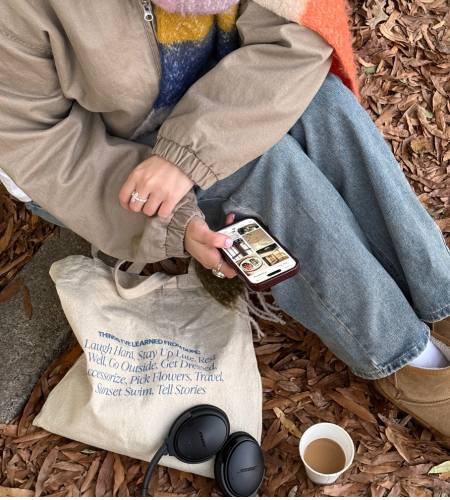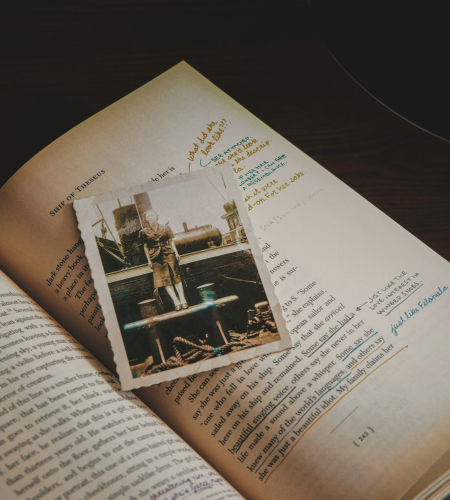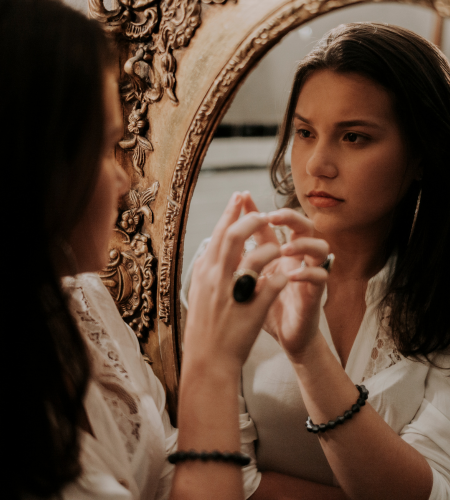
I’ll be the first one to suggest that anyone and everyone start therapy. But the steps to get from your initial decision to your first session isn’t always the easiest. While that shouldn’t be an excuse to avoid going, it’s so easy to let the overwhelm (mixed with natural fear and worry) convince you that “maybe it’s a sign not to go”. So, here are some things you should know to alleviate that overwhelm you feel about starting therapy.
My experience starting therapy
I’ve been in and out of therapy 3 separated times, and each time I make the decision to go again, I feel the same way about starting.
Uuuuuuggghhhhhh.

Not ugh-ing because I don’t want to go. I’m ugh-ing because the process to start can feel really overwhelming!
How can it not when all of this goes into the process:
- Making the decision that you need help
- Finding money in your budget
- Searching through the masses to find the right one
- Trial and error-ing different people
- Figuring out how to work it into your schedule
- Getting comfortable with being vulnerable to a stranger
- The nerves of not wanting to get judged
Tbh it took me at least two months after deciding I wanted to go before I found myself making an appointment. Each time.
While there are certain ways you can uplevel your life on your own, nothing compares to getting support from a therapist. After my first session back, I always end up saying the same thing. “Why did I wait so long to go back?”
The process of starting therapy IS overwhelming. But it doesn’t have to be! Here are the things I wish someone told me before I started therapy that would have made me feel more comfortable and would have made the whole process easier.
Check in with yourself
Before you start therapy, get clear on your why. It’s good to get clear on why you want to start therapy and what you’re looking to accomplish. Getting clear on these goals will give you something to ground yourself with when the idea of starting therapy gets overwhelming.
Ask yourself these questions:
- What do I need help with?
- Am I ready for change?
- Why do I want to change?
- What are the reasons I want to start therapy?
- What benefits am I looking to gain from starting therapy?
- What is my goal? What do I want to accomplish?
- What am I looking for in a therapist?
Consider how much you want to spend
A big reason people avoid therapy is because of the cost. Luckily most insurance companies cover a majority of the cost nowadays, making you only responsible for the copay. If you’re not sure how much your copay would be, call your insurance company and ask about your mental health benefits.
If you don’t have insurance or your plan doesn’t cover mental health, consider using going to a place that offers sliding scale. Sliding scale is a fee structure that for people who don’t have insurance coverage to receive care at a lower fee. The fee would be based on your income, and is drastically lower than the regular out-of-pocket cost. Prices can be as low as $5-$10 per session depending on your income and how much the office is willing to work with you.
Lower fees doesn’t mean a lower-quality care. Whether you pay the full cost or a reduced fee, the therapist will give you the same standard care as everyone else.
When considering costs, think about if you will be going to sessions weekly or biweekly. If you have a limited budget, going to sessions 2 times a month can help you keep costs down. Don’t have the all or nothing mindset that you have to go every week otherwise it “won’t work”. Going any amount of time if better than not going at all!

Ask around for recommendations
It can be intimidating and OVERWHELMING looking for therapists online.
TBH choosing a therapist is in the top 10 of things I hate the most. It can be really hard to distinguish between all of the clutter, and there’s no real rating/reviewing system for therapists (can we start this please?!), so you’re often left judging people based on their short bio or picture.
My first step is always to ask people if they have any recommendations. This includes asking/searching Facebook groups too!
This way you’re not only getting opinions on who is good, but also who to avoid. If you haven’t been to therapy before, you’ll learn real quick that it’s best to weed out the bad eggs early on so that you don’t feel like you wasted 5 weeks opening up to someone you don’t vibe with.
Search the internet
If you’re feeling shy and don’t want to ask for recommendations (totally understandable!), search online.
If you have insurance, you may want to start with your insurance website to see who is in network. I usually peak at this, but I find it really hard to use this as a resource because there’s often little to no information about each provider. I’m just not someone who can determine if Judy or Trish is a good fit based on their names.
Psychology Today is probably the most widely used resource to find a therapist. You can search by location and specialty to narrow down your search.
I’ll usually search Psychology Today for ones that stand out, and then jump back onto my insurance website to make sure they are in network.
Interview different therapists
If you’re new to therapy, I know this sounds scary! But, finding a good therapist is often a matter of trial and error.
When you’re searching for therapists, I definitely recommend making a list or 4-5 that interest you and setting up a 15-20 minute consultation with them before you commit to a full session.
Sometimes if you're reaching out to a larger office that offers multiple therapists, you'll speak to a receptionist that will pair you with a therapist. Ask the receptionist if it's possible to speak with the therapist for a consultation before formally setting up an appointment.
It’s so important to get a feel for who each therapist is before committing your time and money to them, especially if it’s your first time going to therapy. You don’t want to risk having a full session with someone you feel uncomfortable with and allow it to potentially jeopardize your experience with therapy.
When interviewing your list of therapists, ask them questions like this:
- What is your general philosophy and approach to helping your clients?
- What kind of issues can you help with? Do you specialize in anything?
- My problem is _____. How would we go about working on this?
- Do you address the immediate problem, or focus on the deeper issue?
- What is a typical session with you like?
- How long are your sessions?
- Do you give your patients’ homework?
- Do you tend to lead the session, or follow my lead?
There is value in asking questions, BUT the important part of interviewing potential therapists is checking in with yourself afterwards. Pay attention to their responses to your questions, but more importantly ask yourself how you felt when you were talking to them. Did you feel comfortable talking to them, or was it awkward? Did the therapist seem to “get” your questions, and make you feel understood? Did you get a welcoming feel, or did it feel cold?
You may need to talk to a few therapists before you find one that you feel comfortable with and can meet your needs, and that’s okay! Don’t let a bad fit convince you that therapy “isn’t for you”. Therapists aren’t a one size fits all, so don’t be discouraged if you have to go try out a few different ones to find one you like.
Don’t underestimate the importance of finding someone you vibe with - remember that successful therapy often depends on the quality of the relationship between the therapist and the client. So, if you haven’t found one you feel comfortable with yet, keep going!

I set up an appointment! What should I do to prepare?
The best thing you can do before your first session is reflect on your goals and your reasons for starting therapy. Going in with a clear definition of your goals will make easing in to the session easier, and is your best bet to ensure that you get something out of the session.
It’s a good idea to pinpoint what is bothering you and what you’re hoping to achieve from therapy. While you don’t need to know what you want to get out of therapy, it can be beneficial to spend some time considering why you may be feeling the way that you are so you have a jumping off point for your session.
Getting clear and communicating your goals with your therapist is important to ensure that they are meeting your needs and giving you the most out of your sessions.
During your first session, be prepared to talk about a schedule for your sessions. You’ll discuss how often you want to go, and what days work best. So spend some time reflecting on your schedule and how you plan to fit your sessions into your calendar.
My appointment is today, what should I expect?
Although easier said than done, don’t be nervous!
Your initial visit is used for you and your therapist to get to know each other and get a good idea of how to proceed with your sessions. Your therapist will ask you questions to get to know you and your situation better. They will ask about your goals and what you’re looking to get out of working together.
It will be introductory, and should be used to get comfortable with each other.
Get ready to open up and be vulnerable, but don’t expect to receive any instant solutions of your problems during the first session. Future visits will be used to start exploring symptoms, problems, or traumas that will start to work towards finding a solution for you.
Although you won’t really dive in deep during the first session, you should still leave your session feeling supported and hopeful.
If you leave with an icky feeling, ask yourself if it’s because you didn’t vibe with the therapist or if it’s just because it was difficult to open up during your session. If your therapist didn’t make you feel comfortable or you don’t get a good feeling about them, feel free to look for someone else. If you’re feeling unpleasant because of a vulnerability hangover, that’s totally normal! It can be scary to open up to a stranger. Keep going and you should become more comfortable with each session.
While the process of starting therapy is intimidating, I can promise you it’s worth the nerves. There is nothing better than building a strong relationship with a therapist you are comfortable with and receiving support from someone who has taken the time to get to know you and is willing to help you work towards your goals. The relief you’re looking for IS possible, I promise! But it starts with finding someone you feel comfortable working with.
I hope these tips ease your fears and give you the confidence to reach out for help.
If you’re thinking about starting therapy, download our Starting Therapy Guide for all the things I wish someone told me before I started therapy. The guide includes tips, recommendations, resources, journal prompts and scripts to make you feel more comfortable with the whole process. I also included worksheets for before, after, in between your therapy sessions.







[…] Thinking about starting therapy? Here are some tips. […]